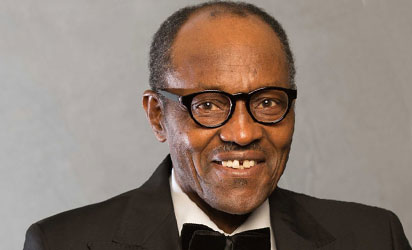Why Nigerians must reject the second coming of Buhari

WHEN Muhammadu Buhari overthrew a democratically-elected government in a coup d”etat in 1983, Sani Abacha declared in his infamous radio broadcast: “(Our) health services are in shambles as our hospitals are reduced to mere consulting clinics without drugs, water and equipment.”
Continue...
However, Buhari did not address the shambolic Nigerian health system in his two years in power. In a Vanguard article of 7th February, 2015, Ambassador Ignatius Olisemeka said of Buhari: “He entrusted to me the care and welfare of his family- he sent his wife and two children to me in Washington D.C. for medical treatment. His family were with me in Washington D.C. when the General was overthrown in a coup d’état.”
Thus, while Buhari was grandstanding as Mr. Fix-It, he sought medical care surreptitiously for his family in the United States, instead of fixing the Nigerian health system. This typifies the hypocrisy and insincerity of Buhari as an agent of change. It is all smoke and mirrors. It is the same duplicity whereby he claimed to be the apostle of anti-corruption even while being complicit in the smuggling in of 53 suitcases at Murtala Mohammed Airport, Lagos in the middle of a currency change.
Buhari’s grandstanding must not be allowed to go unchallenged today, now that he is seeking election under the same kind of democratic system he truncated and trashed in the past. We must not allow Buhari to sweep his ignominious past under the carpet of a bogus mantra of “change.” Indeed, there is something anomalous about presenting a 72 year-old former military dictator as a change candidate. What kind of change can be represented by an old has-been?
In his first coming, the “changes” Buhari brought were to Nigeria’s detriment. Under him, the Nigerian economy went from bad to worse. Our national debt rose from $14 billion to $18 billion in less than two years; with the result that Nigeria was no longer able to meet its financial obligations to global bankers. We had to queue for essential commodities, such as bread and milk, which were hard to find. Raw materials and spare parts needed to keep factories running were scarce. Rather than create jobs, tens of thousands of workers lost their jobs. Inflation rose to the astronomical level of 40%; while it is now 7.9% under Jonathan
When Buhari seized power in 1983, Nigeria’s GDP was $444.45. When he was overthrown in 1985, Nigeria’s GDP had dropped dramatically to $344.14. That is not the kind of change we want. When Goodluck Jonathan became president in 2010, Nigeria’s GDP was $369. By 2014, it had grown dramatically to $510.
Buhari is going around complaining about the recent devaluation of the naira. However, when he took over in 1983, one dollar exchanged for 0.724 naira. But by the time he was overthrown in 1985, one dollar exchanged for 0.894 naira. That is 23% devaluation in barely two years. However, when Jonathan took over in 2010, one dollar exchanged for $167 naira. Five years later, it is now $202.55. That is a devaluation of 21% in five years.-
However, Buhari did not address the shambolic Nigerian health system in his two years in power. In a Vanguard article of 7th February, 2015, Ambassador Ignatius Olisemeka said of Buhari: “He entrusted to me the care and welfare of his family- he sent his wife and two children to me in Washington D.C. for medical treatment. His family were with me in Washington D.C. when the General was overthrown in a coup d’état.”
Thus, while Buhari was grandstanding as Mr. Fix-It, he sought medical care surreptitiously for his family in the United States, instead of fixing the Nigerian health system. This typifies the hypocrisy and insincerity of Buhari as an agent of change. It is all smoke and mirrors. It is the same duplicity whereby he claimed to be the apostle of anti-corruption even while being complicit in the smuggling in of 53 suitcases at Murtala Mohammed Airport, Lagos in the middle of a currency change.
Buhari’s grandstanding must not be allowed to go unchallenged today, now that he is seeking election under the same kind of democratic system he truncated and trashed in the past. We must not allow Buhari to sweep his ignominious past under the carpet of a bogus mantra of “change.” Indeed, there is something anomalous about presenting a 72 year-old former military dictator as a change candidate. What kind of change can be represented by an old has-been?
In his first coming, the “changes” Buhari brought were to Nigeria’s detriment. Under him, the Nigerian economy went from bad to worse. Our national debt rose from $14 billion to $18 billion in less than two years; with the result that Nigeria was no longer able to meet its financial obligations to global bankers. We had to queue for essential commodities, such as bread and milk, which were hard to find. Raw materials and spare parts needed to keep factories running were scarce. Rather than create jobs, tens of thousands of workers lost their jobs. Inflation rose to the astronomical level of 40%; while it is now 7.9% under Jonathan
When Buhari seized power in 1983, Nigeria’s GDP was $444.45. When he was overthrown in 1985, Nigeria’s GDP had dropped dramatically to $344.14. That is not the kind of change we want. When Goodluck Jonathan became president in 2010, Nigeria’s GDP was $369. By 2014, it had grown dramatically to $510.
Buhari is going around complaining about the recent devaluation of the naira. However, when he took over in 1983, one dollar exchanged for 0.724 naira. But by the time he was overthrown in 1985, one dollar exchanged for 0.894 naira. That is 23% devaluation in barely two years. However, when Jonathan took over in 2010, one dollar exchanged for $167 naira. Five years later, it is now $202.55. That is a devaluation of 21% in five years.-



Comments